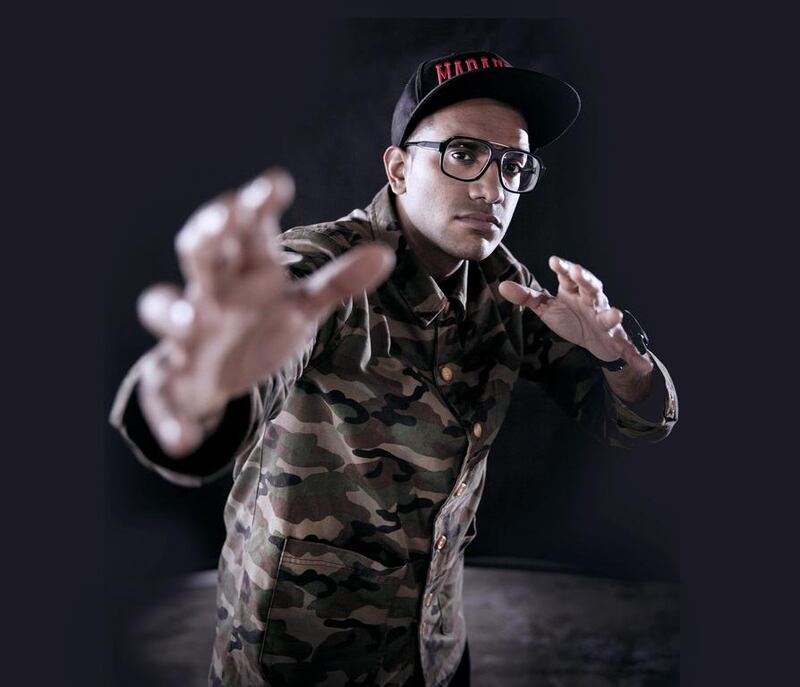When good things happen, they often happen all at once. And in the case of Aamer Rahman, it was in the nick of time.
The Australian-Bengali comic was about to pull the pin on an acclaimed comedy career, during which he won the Best Newcomer Award as part of the comedy duo Fear of a Brown Planet with Nazeem Hussain at the Melbourne International Comedy Festival in 2008, in addition to performing at the Edinburgh Festival Fringe in 2011.
“It was getting a little too hard,” he explains. “The touring and, in some cases, the lack of opportunities – but things changed pretty quickly.”
The turnaround began early last year, when a YouTube video in which Rahman riffed about the concept of “reverse racism” became an internet sensation.
Within a few weeks his already large Australia fanbase swelled, Rahman supported super star comic Dave Chappelle on his debut Down Under tour and he began to build a cult fan-base in the United Kingdom. Rahman was featured in Britain's The Guardian newspaper, Huffington Post, Buzzfeed and Worldstar Hip-Hop, while the video clocked up well over a million views.
It was an apt encapsulation of what Rahman’s material is all about: incisive, cutting and controversial observations about society’s ills, sprinkled with sardonic humour and pop-culture references. The internet fame led to successful tours of the UK, United States and Canada.
The real cherry on top came when The Guardian named his show one of the best of the year and the news website Alternet listed his viral video as one of the year's top moments in political comedy – he was in the number four spot, just behind major stars such as Chris Rock and Stephen Colbert.
Rahman tells us that part of the reason why his brand of humour has connected so well with an international audience is because of his own experiences growing up in the Arabian Gulf and Australia.
Considering the unexpected acclaim last year, does 2015 really feel like a new start?
Well, 2014 was a great year in that I ended up still doing comedy and that was not part of the plan. Before that Reverse Racism clip came out, I was absolutely going to quit. So to be here and still be doing this, and touring internationally, is awesome. Last year, I was wondering whether I would ever go to the US – and then I ended up going twice in the space of three months.
The effect of the Reverse Racism YouTube video resuscitated your career. Does it demonstrate how important the internet is to non-commercial comics?
It's crucial. When you don't have access to platforms such as TV and are based in an isolated place such as Australia, the internet is your best friend. With the Reverse Racism clip, it wasn't planned – I was at that stage where I was trying to wrap up comedy and I already had this thing that was filmed, so I just thought to put it out there as something for people to enjoy. Because normally, as a touring comic, you don't just burn your current material that way. I had already put a lot of things out on the internet but had no idea that it would connect with people that way.
You were born in Saudi Arabia and spent time in Oman before settling in Australia. What memories do you have of the Arabian Gulf?
Honestly, growing up in the Gulf was nice as a kid. I have some great memories of Dhahran, my dad taking me to the mosque every Friday and things like that. I remember the athan [the call to prayer] and just the feeling that your religion is a natural part of daily life and growing up in a time when Islam was not public enemy number one worldwide.
How did you get interested in political comedy?
I was all about that from day one. The comedy I listened to, people such as Bill Hicks, Chris Rock and Dave Chappelle, discussed these topics and I was involved in a lot of political organising. I think that once I had a microphone in my hand, that stuff just automatically came out.
Would you say your comedy is about pointing out societal ills such as racism and discrimination?
Well, my thing is not to point out things that people haven’t noticed. My audience has already noticed it. My show is basically about being together and being honest about it.
What do you say to people who don’t understand you or who cry foul at some of your comments?
They’re not on my radar. One of the main rules as a comic is that you’re not supposed to be explaining your jokes. If people don’t like what I do, then they can always watch Dane Cook.
Finally, is there any chance of a UAE show?
I would love to come. It is an interesting audience there and one that you won’t find anywhere else in the world. It would be interesting to see who would be interested in what I’m saying.
For more information, visit www.aamerrahman.tumblr.com
[ sasaeed@thenational.ae ]






